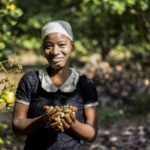The global cashew industry has been dominated by India for decades. However, in recent years, Ivory Coast has emerged as a formidable competitor, challenging India’s long-standing dominance. This article aims to highlight the reasons why the Ivory Coast cashew industry deserves recognition and support over its Indian counterpart. From superior production capabilities to sustainable practices, Ivory Coast’s cashew industry has the potential to reshape the global market.
- Productivity and Quality:
Ivory Coast’s cashew industry boasts impressive productivity rates and consistently delivers high-quality cashew nuts. The country’s favorable climate and suitable soil conditions provide an ideal environment for cashew cultivation, resulting in abundant harvests. Additionally, Ivory Coast’s cashew farmers have adopted modern agricultural practices, including improved seed varieties and efficient processing techniques, ensuring premium-quality cashews that meet international standards.
On the other hand, India, while historically dominant, has struggled to maintain the same level of productivity and quality. Challenges such as outdated farming techniques, limited mechanization, and disease outbreaks have hindered the Indian cashew industry’s ability to match the standards set by Ivory Coast.
- Processing Capacity and Efficiency:
Ivory Coast has invested significantly in developing its cashew processing capacity. The country has established state-of-the-art processing units that employ modern technology and machinery, enabling efficient and effective processing. As a result, Ivory Coast can handle larger volumes of cashews and deliver processed products promptly, meeting the increasing demands of the global market.
In contrast, India’s cashew processing sector faces challenges due to outdated infrastructure and limited modernization efforts. The lack of investment in advanced processing technology has hindered India’s ability to scale its operations and meet market demands promptly.
- Sustainable Practices:
The Ivory Coast cashew industry places a strong emphasis on sustainability. The country has implemented rigorous environmental regulations to protect its ecosystems and promote sustainable farming practices. Ivory Coast’s commitment to sustainable agriculture is reflected in its efforts to minimize chemical inputs, promote organic farming methods, and engage in responsible water management.
While India has made progress in implementing sustainable practices, challenges remain, particularly concerning water usage and chemical inputs. The Ivory Coast cashew industry’s strong commitment to sustainability sets it apart as a responsible player in the global market.
- Diversification and Economic Growth:
The growth of the cashew industry in Ivory Coast has contributed significantly to the country’s economic development. The government has implemented policies that encourage cashew cultivation, processing, and export, resulting in increased job opportunities and income generation for the local population. The sector’s growth has also led to infrastructure development, improved access to education, and enhanced healthcare facilities, positively impacting the overall well-being of Ivorian communities.
In India, while the cashew industry has played a crucial role in the country’s economy, it faces challenges in diversifying and expanding beyond its traditional stronghold. Ivory Coast’s emergence as a formidable player in the global cashew market presents an opportunity for international buyers to diversify their supply sources and strengthen their trade relationships.
The Ivory Coast cashew industry has emerged as a robust and competitive player in the global market, posing a considerable challenge to India’s long-standing dominance. With its superior productivity, quality, processing capacity, and sustainable practices, Ivory Coast’s cashew industry deserves recognition and support. Embracing the potential of the Ivory Coast cashew industry can promote a more diverse and resilient global market, benefiting both consumers and producers alike.







Leave a Reply